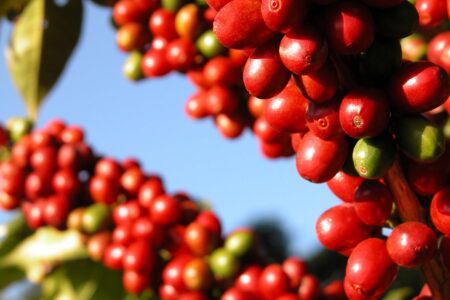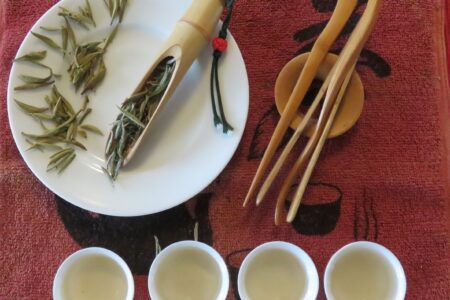Functional coffee’s popularity is surging but the ‘true’ benefits remain questionable
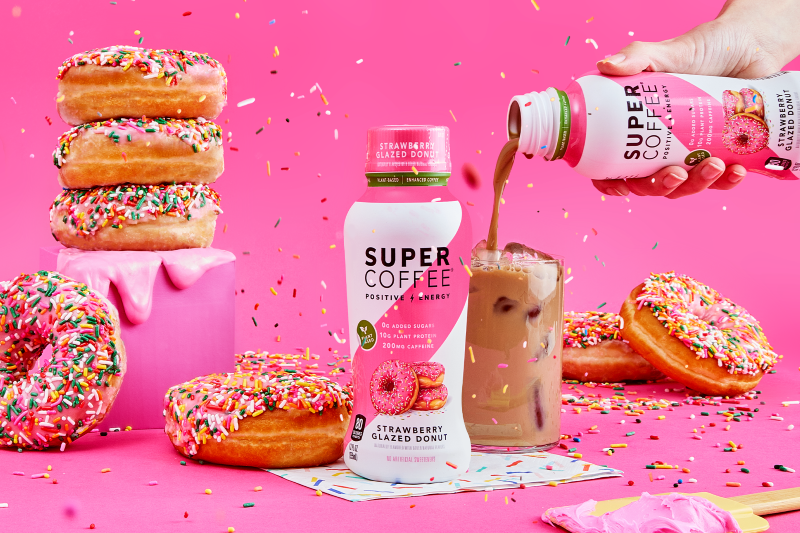
Image: Super Coffee
Coffeemakers take advantage of a growing global demand for functionality, diversifying their offering at the expense of products having a healthy halo. This approach promises to work for the time being, though long-term prospects are undermined by a scarcity of scientific data confirming the benefits of the most popular functional ingredients. By Vladislav Vorotnikov
“Let food be thy medicine and medicine be thy food” harkens back to Hippocrates, the Greek founder of western medicine. This famous quote is a thousand years old, though it has never been as relevant as in the post-Covid era.
Functionality is the most prevalent trend in the non-alcoholic beverage industry, said Jochen Kistner, director of category marketing, EMEA, at Chicago-based Archer Daniels Midland, adding that what originally began in Europe in the 1980s with energy drinks for athletes has now turned into a much broader social phenomenon, with 68 percent of consumers worldwide in 2021 preferring to buy drinks with additional functional benefits.
The list of functional ingredients used in the coffee industry is long and constantly grows as more companies enter the segment with new offerings. Cannabidiol, mushrooms, superfruits, spices, antioxidants, and herb extracts are the most common examples, but the opportunities in this area are far from being exhausted.
The market is heading up
Analysts expect functional coffee to enjoy a strong growth in popularity in this decade. International think tank, Research and Markets, projects global sales to rise on average 5.9 percent per year between 2022 and 2027.
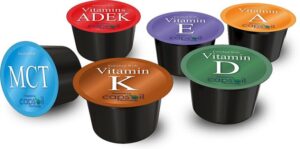
Image: Capsoil FoodTech, by Prodalim, Ltd
Technavio, a London-based consulting firm, forecasts a similar growth pace in 2021-2026, resulting in a rise in global sales by USD $2.36 billion during this period.
There is no consensus between the analysts about the current size of the global market, though. ReAnIn, an Indian research and consulting firm, also puts the compound annual growth rate of the global functional coffee market at 5.9 percent in 2018-2028, calculating however, that this would boost sales by only $1.1 billion to around $3.3 billion. This confusion primarily comes from the difference in research methodology and criteria of what coffee to attribute to functional.
Nevertheless, all analyst groups agree that the demand will rise in the next several years as consumers want double-duty from their favourite beverages.
“Consumers are developing an affinity for functional beverages seeing them as a suitable, convenient, and healthy alternative to soft drinks. The organoleptic versatility associated with functional coffee makes it open to manufacturers to innovate alongside the healthy trends,” Research and Markets said.
Technavio estimated that one of the key factors driving the global functional coffee market growth is the increasing popularity of coffee among millennials.
“An improvement in economic conditions and an increase in job opportunities have made different types of coffee more affordable to young consumers. Millennials tend to spend more on premium beverage brands and are also keen to experiment with new types, brands, and flavours of beverages,” the analysts said.
Millennials also tend to socialise more, especially in coffee shops. This has led to a surge in the number of coffee shops, which has further strengthened the global functional coffee market. In addition, rising disposable incomes in emerging Asian, Eastern European, and Latin American consumers is also contributing to the growth.
No compromises
“The challenge for developers is to find the right balance between functionality and taste,” Kistner said, adding that consumers want targeted nutrition, including ingredients benefitting alertness, relaxation, or concentration. On the other hand, consumers don’t want to compromise on taste to enjoy the product.
When functional ingredients become part of a beverage formulation, product appearance, taste, and even texture can all be impacted, which often becomes a challenge.
“Our first attempts at functional coffee were ridiculous as hell. We just took ginger root, grated it and kneaded it into the coffee. It was still ugly. But more importantly, it had nothing to do with that idea of a functional drink,” said Alexander Afanasiev, spokesperson for Biwell International SA, the manufacturer of Swiss premium, functional infused coffees. In 2019, the company launched Da Maestri capsules, a family of offerings compatible with Nescafé Dolce Gusto’s professional-grade single-serve coffee machine.
“At this point, we clearly realised the obvious — we will have to work very hard and for a very long time,” Afanasiev said, adding that it took the company years of time and tonnes of R&D to make a range of coffee that is functional and has an appealing taste.

Image: Biwell International/Da Maestri
The types of functional coffee mostly in demand on the market are those improving brain and memory function and cardiovascular system. The Covid-19 pandemic also bolstered the demand in the segment of coffee for immunity and digestive system, Afanasiev said.
SolaBev, a US-based proprietary single-serve capsule system for making filter coffee, also spent a lot of time developing functional coffee drinks, said Michael Szyliowicz, the founder. “The two types of drinks we have developed are CBD-infused and mushroom coffees. Both types represent trends that I believe will continue to grow as more consumers become aware of the benefits of both,” he added.
One of the most surprising discoveries the SolaBev team made was that the functional coffee market was full of misleading information about the available products. “Last year, one of our coffee roasters partnered with a CBD company to provide single-serve capsules infused with their CBD. Although there are many different coffees available with CBD, we found that most of the claims that were made were very misleading. Most of the CBD coffees for sale tout the amount of CBD in the bag or in the K-Cup, but do not address the issue of how much CBD is actually present in the cup after brewing,” Szyliowicz said.
“We tested a number of brands and found that most of the claims were wildly inaccurate. Because SolaBev is a proprietary capsule, we were able to ensure that the amount of CBD claimed, in this case, 15mg, was the amount measured in the cup,” he added.
CBD-infused coffee is believed to be one of the fastest-growing segments of the functional coffee market. Analysts put the annual growth in sales on the CBD coffee market between 14 percent and 27 percent in the coming years. On the other hand, coffee with mushrooms is a slow-growing category, Szyliowicz said.
Health benefits under question
The concept of functional coffee is tightly linked to adaptogens — plants and mushrooms believed to help your body respond to stress, anxiety, fatigue and overall well-being.
Over the years, people used to take adaptogens by adding them to food or beverages or take them as tinctures. Their popularity spiked during the Covid-19 pandemic, but so far, the science of adaptogens remains disappointing.
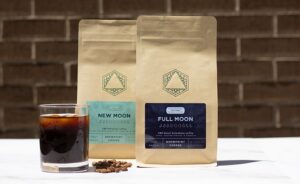
Image: Haley Sliwa
The term ‘adaptogen’ was first proposed in 1940 by Soviet scientist Nikolay Lazarev when he described “Schisandra chinensis” (plant with high potential for beneficial health effects such as anti-cancer, anti-aging; anti-obesity, anti-diabetes) and other herbs with the following definition: plant-originated adaptogens that can non-specifically enhance the human body.
Soviet nutritionists heavily studied several adaptogens during the World War II in an attempt to improve the performance of soldiers on the battlefield. In the following years, more than 1,000 studies were conducted on dozens of various adaptogens. In the 1980s, adaptogens even became a part of the popular myth of the Kremlin Pill – a legendary top-secret medicine that was said to cure all diseases.
A 2018 review conducted by a group of Chinese researchers on studies of adaptogens showed the clinical application of plant-originated adaptogens and their use in healthcare products remains in the preliminary stage. Some of the most widely used and popular adaptogens have never been adequately tested or appeared to have no suggested health benefits.
In a blog at the website of McGill University, Jonathan Jarry, MSc, pointed out that adaptogens have had a thick glop of marketing smeared all over them. “Product labels and social media influencers will parade limitless claims: adaptogens are said to sharpen your memory, boost your sex drive, rid yourself of exhaustion, help stabilise your blood sugar, and fight cancer. They might also assemble your IKEA furniture for you and help you with your financial investments if they had opposable thumbs and direct access to your bank account,” he said.
The relatively few studies on adaptogens done in humans tend to be disappointing. They often lack randomisation, recruit only healthy people, and they don’t specify the dose of the herb that was tested. Reviews of the evidence often conclude that, at best, adaptogens may help with stress and fatigue and that more studies are needed. At worst, there is no indication they have the claimed clinical benefit, according to Jarry.
The same goes for CBD, which seems to be everywhere, but scientists still don’t know much about it. The Food and Drug Administration (FDA) of the United States has approved only one drug containing CBD, Epidiolex, after clinical trials found it reduced seizures in children with two rare, severe forms of epilepsy. However, most studies on the effect of CBD on the human body remain controversial.
Scientists admit that CBD, as well as some other ingredients currently widely used to produce functional coffee, enjoy a lot of hype, but as customers are constantly becoming more demanding and knowledgeable, the long-term growth of the market is not guaranteed.
- Vladislav Vorotnikov is a Batumi, Georgia-based multimedia B2B freelance journalist writing about the tea and coffee industry since 2012.

